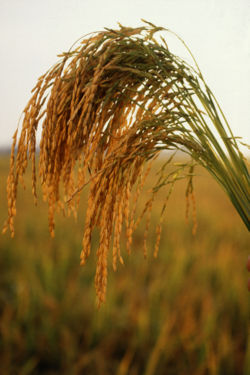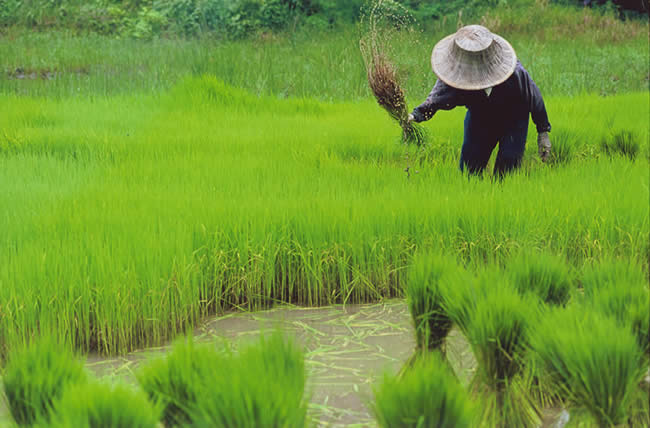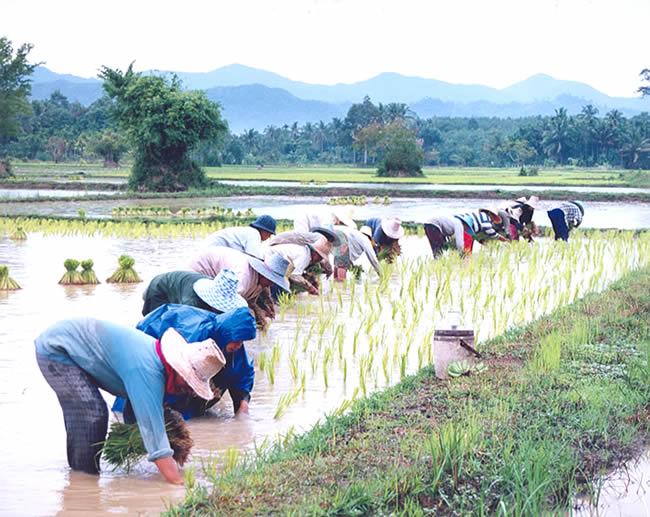|
|
| | 1 | 2 | 3 | 4 | 5 |
| 6 | 7 | 8 | 9 | 10 | 11 | 12 |
| 13 | 14 | 15 | 16 | 17 | 18 | 19 |
| 20 | 21 | 22 | 23 | 24 | 25 | 26 |
| 27 | 28 | 29 | 30 | |
|
| |
|
|
|
|
|
|
|
|
|
ข้าวไทย

ข้าวไทย
หม่อมเจ้าสิทธิพรฯ
ทรงกล่าวสัจวาจา
"เงินทองของมายา
ข้าวปลาเป็นของจริง"
มื้อนี้แหล่ะข้าวไทย
ไปเข้าห้างไปขึ้นหึ้ง
ต่างช่วงและต่างชิง
ขึ้นตาชั่งตั้งราคา
ข้าวไทยคือทองคำ
อร่ามทุ่งอร่ามท่า
วันนี้แหล่ะชาวนา
จะเงยหน้าจากแผ่นดิน
น้ำมันอันพุ่งแพง
ราวแกล้งโลกให้เดือดดิ้น
ทองคำก็โบยบิน
บ่รู้สุดที่จุดใด
ในน้ำนั้นมีปลา
แลในนามีข้าวให้
นี่คือกำลังไทย
ที่จะสู้กับสากล
จงรักแผ่นดินเกิด
จงทูนเทิดเนื้อนาตน
เทิดค่าผู้นาชน
ผู้สร้างไทยให้เป็นไทย!
เนารัตน์ พงษ์ไพบูลย์
เดลินิวส์ หน้า 16
อาทิตย์ 6 เมษายน 2551


Photos credit to: //www.vikipedia.org and //www.thairice.org
| Create Date : 08 เมษายน 2551 |
|
9 comments |
| Last Update : 26 พฤษภาคม 2552 18:08:55 น. |
| Counter : 1971 Pageviews. |
|
 |
|
|
| | |
โดย: เป่าจิน  10 เมษายน 2551 10:46:08 น. 10 เมษายน 2551 10:46:08 น. |
|
|
|
| | |
โดย: เป่าจิน  10 เมษายน 2551 10:48:46 น. 10 เมษายน 2551 10:48:46 น. |
|
|
|
| | |
โดย: rebel  18 เมษายน 2551 21:06:47 น. 18 เมษายน 2551 21:06:47 น. |
|
|
|
| | |
| โดย: Lek IP: 66.215.231.44 18 สิงหาคม 2551 10:56:18 น. |
|
|
|
| | |
โดย: err_or  5 กันยายน 2551 14:02:10 น. 5 กันยายน 2551 14:02:10 น. |
|
|
|
| | |
โดย: err_or  5 กันยายน 2551 14:02:14 น. 5 กันยายน 2551 14:02:14 น. |
|
|
|
|
|
|
|


ต้องประหยัดและก็เห็นคุณค่าของข้าวให้มากขึ้น
อิอิ